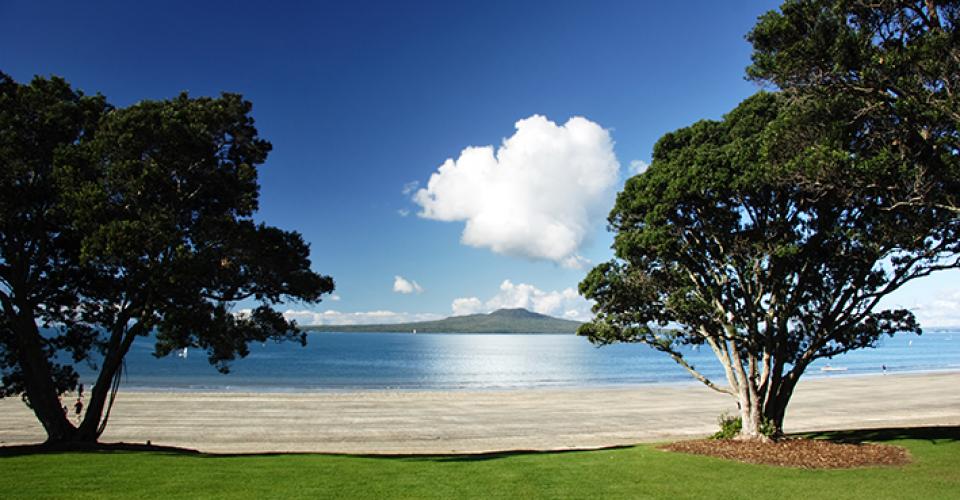Encouraging creative problem solving
25/02/2016The CREST scheme inspires young scientists to do meaningful work.

CREST is the Royal Society of New Zealand’s international awards scheme that fosters interest in science and technology education.
Through the scheme, students have authentic opportunities to learn from working scientists in the community.
Jessie McKenzie is project manager science education at the Royal Society of New Zealand. She shares some information about CREST:
CREST is a student-orientated programme with the nature and topic of the investigation chosen by the student or students who are working on the investigation. They then work with a scientist or technologist who acts as a consultant/mentor ensuring the students are able to understand the complexity involved in their investigations.
CREST encourages students to be creative and gives them an understanding and experience of the importance of perseverance and the application of knowledge to solving problems. By identifying their own investigations they are able to address issues of real significance in their lives.
CREST has been developed to encourage and reward creative and innovative thinking, the seeking of new knowledge and to develop communication skills in school students. The focus on developing students’ tacit knowledge is achieved by providing a framework to access experts outside the school. CREST helps bridge the gap between academic learning in school and the challenges and opportunities of the real world. Importantly, it exposes students to the modern RS&T processes of research organisations and knowledge-based industries.
CREST has five different levels, reflecting the increase in the commitment of the students and the complexity of the research they are working on. Initially, individual and team Gold, Silver and Bronze Awards and First CREST were available.
In 2010 Primary CREST was added to the mix as a way of giving even younger students the opportunity to undertake a variety of contextualised activities, thus developing the skills to undertake an investigation.
The students’ involvement in the CREST programme, especially at the Bronze, Silver and Gold levels, requires guidance and encouragement from teachers and increasing levels of involvement from the mentor.
CREST develops enterprise and entrepreneurial skills, encourages and rewards creative and innovative thinking, and teaches students goal-setting, problem-solving, risk-taking and perseverance in the face of adversity.
Offering the improvement of literacy in science and technology at all levels as well as an extension of extremely able students at the higher levels, CREST also exposes students’ families and local communities to their projects, thus increasing scientific and technological literacy in society generally.
The CREST programme requires close collaboration between students and role models from knowledge-based, wealth-creating industries, so provides students with valuable insights into, and creates interest in, careers they may not have even been aware of.
As students work on their projects they develop social, environmental and financial awareness, considering questions of sustainability, environmental impact, ethics, social responsibility and fiscal responsibility. Required to keep a detailed log of their practise, students reflect how they could improve and what can be learned from past mistakes, so they learn to self-evaluate.
The nature of this award scheme strongly promotes students being innovative, lateral thinkers, open to new concepts and ideas as well as continual self-improvement.
From a student’s perspective, features such as the incentive of an award, working with outside experts, accepting responsibility for their own learning and the opportunity for multiple assessments, including NCEA credits, have great appeal and provide a high level of motivation to produce excellent work.
Find more information about CREST here.
 Left: Chun Kiet Vong and Siddha Ganesan. Photo: Royal Society of New Zealand.
Left: Chun Kiet Vong and Siddha Ganesan. Photo: Royal Society of New Zealand.
Gold CREST at Onslow College
Onslow College students Chun Kiet Vong and Siddha Ganesan were awarded a Team Gold CREST for their project ‘Affordable, Robust and Accurate Absorption Spectrometer’. The pair was mentored by Dr Justin Hodgkiss (Victoria University of Wellington) and supported by their supervising teacher, Kent Hogan.
Chun Kiet talks to New Zealand Science Teacher about the work they undertook:
Can you tell me how you came up with the idea behind your special absorption spectrometer?
We came up with many ideas before we got to our Gold CREST project. Many of our ideas we found to be non-viable as they were either above our budget limit and/or they were not so real world applicable as we thought.
We also took suggestions from Kent and our parents. One of the ideas suggested by one of our parents was to do with chemical sensors used in transformers, and how we might make them more robust and efficient. This led to our Gold CREST project after several tweaks to narrow our aim and to fit our budget limit.
What year are you in at Onslow College, and what science subjects are you both studying?
We were both in year 12 at Onslow when we were starting our Gold CREST project. The science subjects I studied when I was in Year 12 were physics, chemistry and biology. We finished our Gold CREST project by the end of our 2015, when we were in year 13. I also studied the three science subjects in Year 13.
How did your teacher support you in the project? Would you recommend the CREST challenge to other science students?
Kent was especially supportive to us as he was our supervisor and sort of like another one of our mentors. He helped us manage our project and even proofread our reports numerous times. Overall, I don't think we could have finished our Gold CREST project without Kent.
I would definitely recommend the CREST challenge to other science students if they are interested in research and projects. The CREST challenge has taught us many aspects of science investigation that are also applicable to many other real-world applications. It has also taught us how to manage our time and our project, as well as teaching us how to write a report. I think that the skills learnt in the CREST challenge are relatable to work and university life in many cases, so I think that the CREST challenge will benefit the students. Additionally, after completing their CREST challenge students will have a very notable achievement to add to their CV.

























Post your comment
Comments
No one has commented on this page yet.
RSS feed for comments on this page | RSS feed for all comments